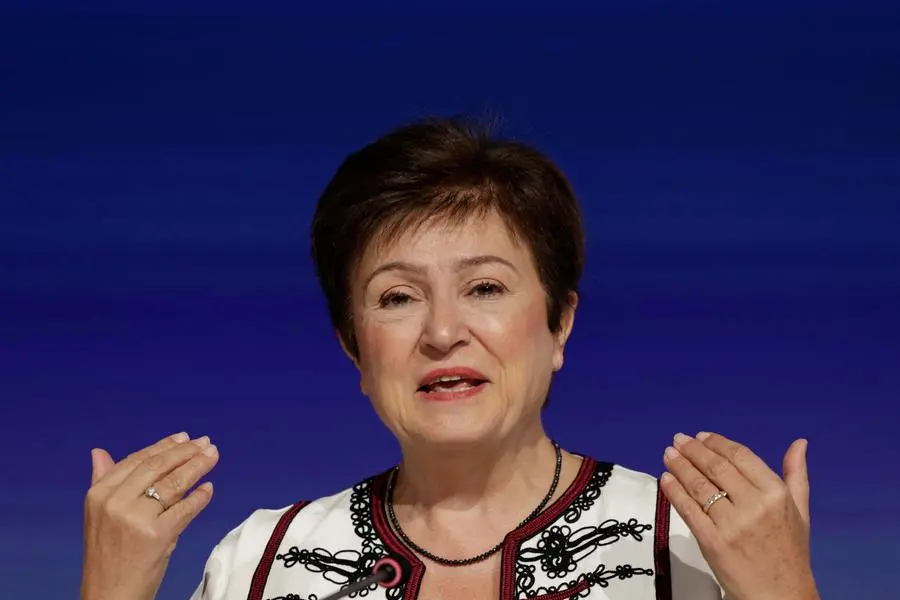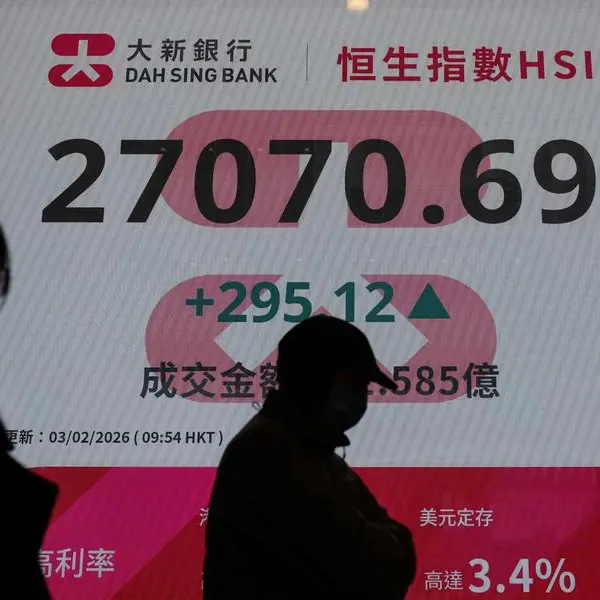PHOTO
Medium-term global growth prospects are the weakest in decades, but G20 major economies could boost growth prospects if they work together to address climate change, avoid trade restrictions and adopt worldwide principles for artificial intelligence (AI), the International Monetary Fund said.
IMF Managing Director Kristalina Georgieva urged G20 major economies to "act boldly" to rebuild policy momentum on reforms after years of "firefighting" in the wake of economic shocks caused by the COVID-19 pandemic and the war in Ukraine.
With global growth expected to reach 3.1% in 2024, inflation falling and job markets holding up, policymakers could now focus on rebuilding fiscal buffers against future shocks, boosting domestic revenues, curbing the rise of public debt and ensuring that trends such as AI improve growth prospects, she said in a blog published on Monday to accompany an IMF report to the G20.
Georgieva, who will address G20 finance officials when they meet in Sao Paulo this week, said low global growth affected all countries, but had "particularly troubling" implications for emerging markets and developing economies, which have weathered successive global shocks but continue to lag behind advanced economies.
She said it was vital for countries to continue to work to broaden their tax base, close loopholes and improve tax administration, noting that the G20 had asked the IMF and World Bank to launch a joint initiative on the issue.
The IMF report said it was now expected to take 130 years for emerging markets and developing economies to close half the gap in income per capita with advanced economies, up from around 80 years before the 2008 global financial crisis.
Brazil, this year's president of the G20, has made ending inequality and addressing climate change a top priority.
Given the recent improvement in the near-term outlook, with a "soft landing" now in sight, G20 policymakers could set "their sights on a more equitable, prosperous, sustainable, and cooperative future," Georgieva said.
She also said central banks should track inflation carefully and avoid easing monetary policy too soon or too fast.
The IMF said medium-term growth prospects remain tepid due to weak productivity growth, aging, fragmentation and climate vulnerabilities, but there are still growth opportunities from trade in digital services, and AI, if properly harnessed.
It said G20 leaders should step up efforts to tap Africa's growth potential and enable greater investments in education, health, and gender equality, and ensure greater coordination on debt restructuring for countries unable to make payments.
Cooperation by the G20, including through carbon pricing, reduced energy subsidies and border carbon adjustment mechanisms, could also help mitigate the effects of climate change and facilitate the green energy transition, the IMF said.
It called on them to work together to ensure the responsible use of AI, including by upgrading domestic regulatory frameworks and harmonizing global principles for its use.
(Reporting by Andrea Shalal; Editing by Paul Simao)




















